Surprisingly, the reaction shown below goes through classical carbocation. What is the major product of this reaction?
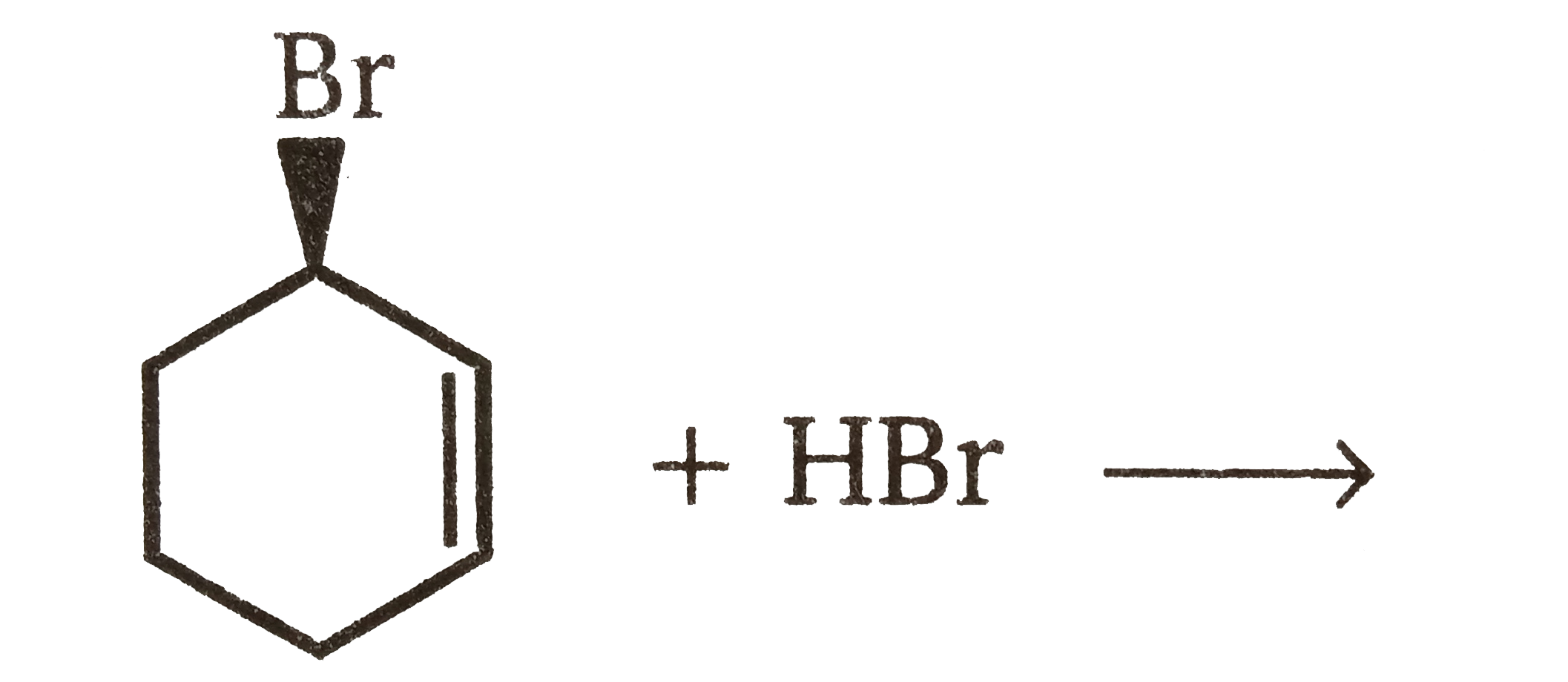
trans-1, 3-dibromocyclohexane
cis-1, 3-dibromocyclohexane
trans-1,2-dibromocyclohexane
cis-1, 2-dibromocyclohexane
The correct Answer is:A
The following Reaction are
Topper's Solved these Questions
- HYDROCARBONS (ALKENES)BOOK - MS CHOUHANCHAPTER - HYDROCARBONS (ALKENES)EXERCISE - Level 1 (Q.1 To Q.30)
1 Videos
- HYDROCARBONS (ALKENES)BOOK - MS CHOUHANCHAPTER - HYDROCARBONS (ALKENES)EXERCISE - Level 1 (Q.61 To Q.90)
2 Videos
- HYDROCARBONS (ALKANES)BOOK - MS CHOUHANCHAPTER - HYDROCARBONS (ALKANES)EXERCISE - Level 1 (Q.31 To Q.50)
1 Videos
- HYDROCARBONS (ALKYNES)BOOK - MS CHOUHANCHAPTER - HYDROCARBONS (ALKYNES)EXERCISE - Level 1 (Q.1 To Q.30)
2 Videos
Similar Questions
Which of the following is the best stereochemical representation when reaction between 1-methylcyclohexene and NBS react in aqueous dimethyl sulfoxide?
View SolutionThe products P and Q in the following sequence of reactions, are

View SolutionAmong the following free radical bromination reactions, select those in which 2∘ halide is the major product-

View Solution (A) , product (A) is:
(A) , product (A) is:
View SolutionIn the reaction shown below the major product (s) formed is/are .
View SolutionIn this reaction shown below, the major product(s) formed is //are
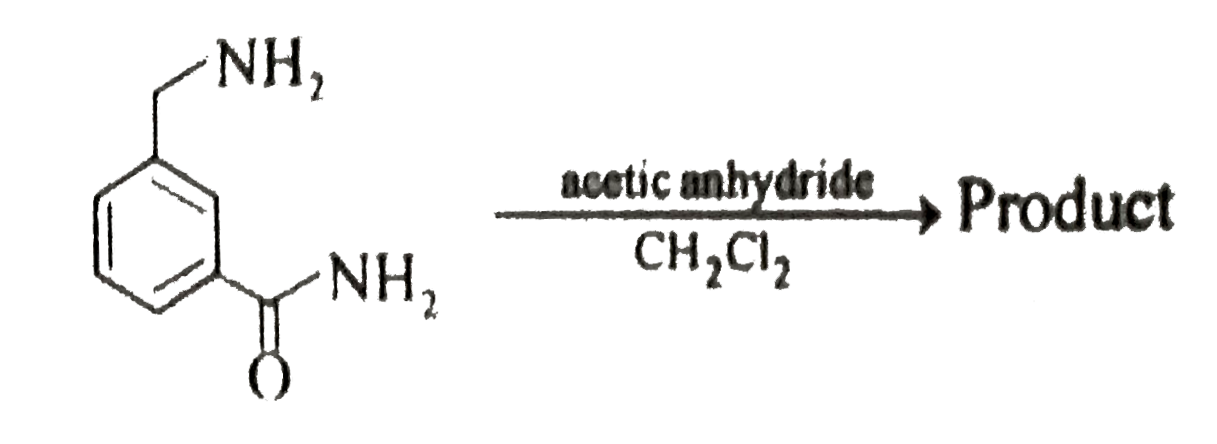
View SolutionWhich of the following bromides is the major product of the reaction shown below, assuming that there are no carbocation rearrangement?

View SolutionWhich of the following is major product of reaction shown below?
View SolutionADDITION REACTION - CLASSICAL CARBOCATION
View SolutionADDITION REACTION - NON CLASSICAL CARBOCATION
View SolutionIn the reaction shown below, the major product(s) formed is/are .
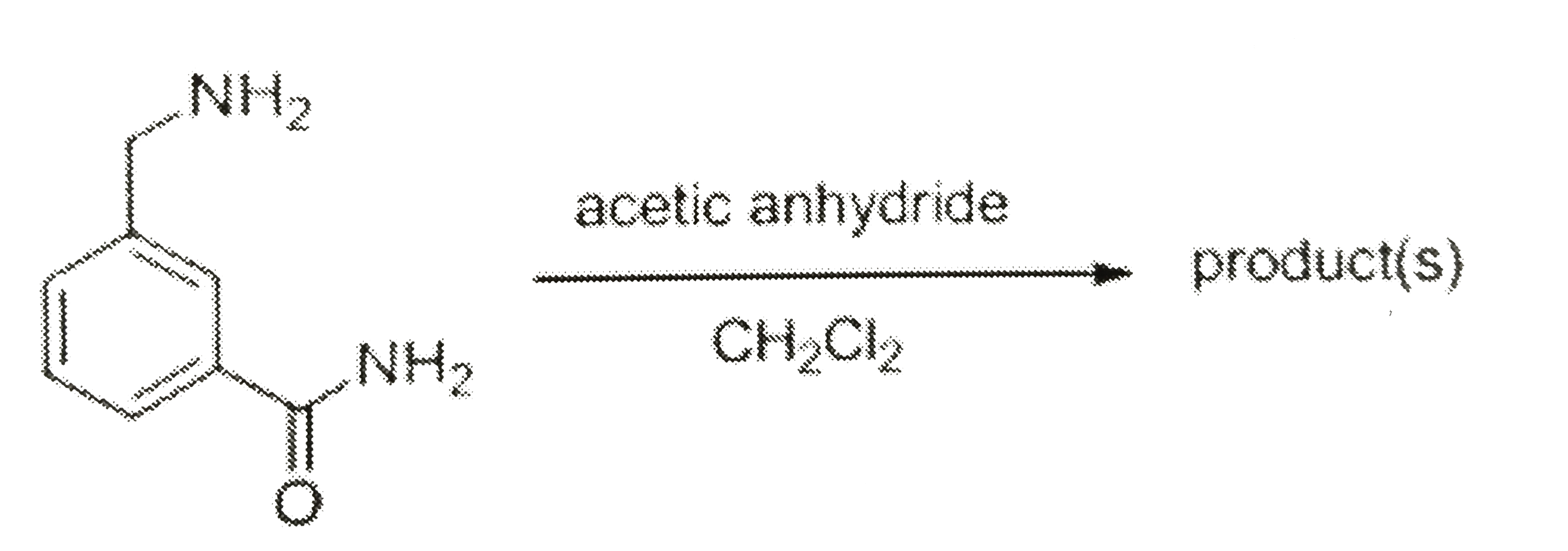
View SolutionIn the reaction shown, below, the major product(s) formed is/are :
View SolutionIn the reaction shown below, the major product (s) formed is/are
View Solution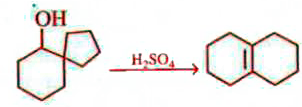
In the above reaction the major product is shown, which is formed through the intermediate (carbocation given below:
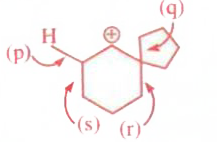
Which bond will migrate to form above product ?
View SolutionElectrophilic Addition Reactions (Classical Carbocation)
View SolutionElectrophilic Addition Reactions (Classical Carbocation) Continued
View Solution
